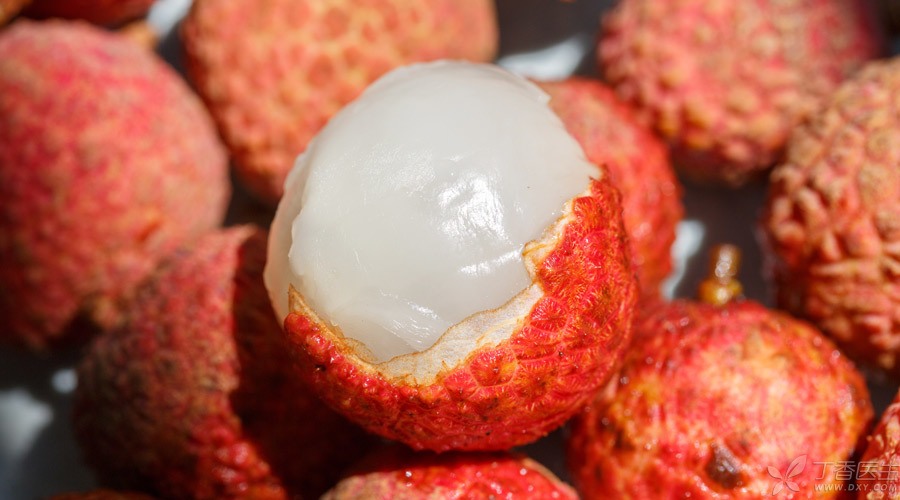
It’s time for litchi to go on the market again.
It is often said that eating litchi is easy to get angry. One of the manifestations is nosebleeds. Is this statement scientific?
Do you really have nosebleeds when you eat some kind of food?
Nosebleeds are so common that most people in the world have experienced them.
In medicine, it is called [epistaxis]. The most common causes include nasal inflammation, trauma, cardiovascular diseases, coagulation abnormalities and other systemic diseases.
Of course, bad environmental conditions, such as dust and high temperature environment, can also cause epistaxis.
Then we don’t eat litchi or other foods with our noses. Of course, nosebleeds are not caused by food irritating nasal mucosa. Why is that?
Many people believe that there must be some scientific principles behind the widely circulated experience, so they try to find out some components from litchi that can cause nosebleeds.
Litchi disease? Is fructose too high?
Current research does show that:
This disease is called “litchi disease”. If we eat litchi on an empty stomach, we really need to keep our mouths shut and not eat too much at once.
However, the current research cannot show how much connection there is between litchi disease, hypoglycemia and nosebleeds. Even among litchi disease patients, there are only a few who have nosebleeds.
Others believe that a large amount of fructose in litchi may cause a large amount of consumption of B vitamins during metabolism, thus causing epistaxis.
This explanation seems reasonable, but there are many foods with high fructose content, and litchi is only one of them. Why does eating other foods with high fructose content not cause nosebleeds?
In real life, nosebleeds are rare simply because fructose intake increases. When B vitamins are deficient, nosebleeds are also less common.
Therefore, this explanation and conjecture need more evidence to support.
Does litchi contain ingredients that promote inflammation?

Others have tried to extract some ingredients from litchi that can promote inflammatory reaction, and some studies have indeed found them.
However, inflammatory reaction is the mechanism of a major disease phenomenon in human body. Inflammation is not equal to nosebleeds.
In addition, if we look for more foreign literature, we will find that there are too many ingredients in litchi, they do not all promote inflammatory reaction, and many of them even inhibit inflammatory reaction, such as flavanols, etc.
Only according to the efficacy of some active substances in litchi, we cannot deduce or explain that litchi has what’s special features. Therefore, this explanation is also limited in persuasion and needs more evidence to support it.
How many people really have nosebleeds from eating litchi?
Speaking of which, we should ask: How many people really have nosebleeds because of eating litchi?
I’m afraid otolaryngologists have the most say.
If eating litchi will increase the probability of nosebleeds, then, as long as there are enough people eating litchi, there will definitely be some people who will go to the hospital to see a doctor because of the large amount of bleeding.
However… I haven’t seen many articles about the increase of epistaxis caused by litchi listing.
Even experienced otolaryngologists seldom see people who come to see doctors because of nosebleeds from eating litchi.
Obviously, for a considerable proportion of people, there is not much inevitable connection between eating litchi and nosebleeds. In other words, eating litchi according to the habits of many people will not cause nosebleeds at all.
Some people have nosebleeds when eating litchi. How do you explain it?
So, how can we explain the fact that some people really have nosebleeds after eating litchi?
Perhaps, nosebleeds are only an accidental phenomenon after eating litchi.
The relationship between the two was only in chronological order, and there was no causal relationship. Although litchi has various components, it has no obvious influence on people as a whole.
Perhaps two, this is actually food allergy and food intolerance.
In other words, only some special people will have nosebleeds after eating litchi, and most people will not. At present, everyone also accepts the second possibility.
- Food allergy: Related to the immune system, when we eat certain foods, the human immune system will recognize the special ingredients in these foods, which will lead to a series of symptoms. Food intolerance: It is often caused by factors other than immunity. For example, fructose intolerance and lactose intolerance are caused by the lack of certain enzymes in the body that digest nutrients.
Unfortunately, at present, our instrument examination and laboratory tests often cannot give accurate judgment for these two diseases. Even if there are antibodies to food in the blood, it does not mean that we will definitely have allergic reactions to the food we eat.
The best method of diagnosis is [avoidance and stimulation] test, which is… just eat and see.
If we have nosebleeds when eating litchi, we do not have nosebleeds when we do not eat litchi at all, and it is always the case, then we should really try not to eat litchi. Other foods are similar.
How should litchi be eaten?
Finally, Dr. Clove will give you a summary:
1. The existing knowledge cannot tell us what happened to nosebleeds after eating litchi.
However, reality also tells us that many people do not have nosebleeds after eating litchi.
2. For most people, litchi can be eaten at ease.
If you find that you will always have nosebleeds after eating litchi, and you will never have nosebleeds if you don’t eat litchi. If you try and test it repeatedly, then eat less or don’t eat it.
Only friends who occasionally have nosebleeds or have never had nosebleeds can eat at ease.
3. Avoid eating too much litchi on an empty stomach, quickly and fiercely.
How much is too much? It is suggested to eat 200 ~ 350 grams of fruit a day, just 10 or 20 fresh litchi. After all, if you eat too much, you will be fat.
